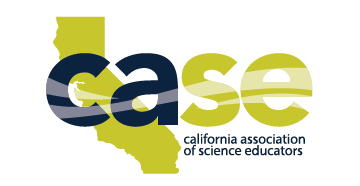
Short Courses
SHORT COURSES
Want to dig deeper? Excited to learn from seasoned experts? Craving a guaranteed seat and more interaction in a smaller session? Then conference short courses are calling your name!
CASE is excited to offer an outstanding lineup of short courses at this year's conference! These 3-hour sessions dive deep into NGSS, engineering design, and more, providing hands-on experiences and ready-to-use materials for your classroom.
Each short course is a ticketed event, ensuring you a spot and access to valuable resources. These courses are expected to sell out quickly, so be sure to sign up soon!
Need district support? Remind your administrator that the District's LCAP Priority #2 backs the implementation of state academic standards. CASE's short courses are designed to align with the California NGSS, Common Core, or both. CASE's Conference on Science Education will provide you with short courses that will help you with this.
All short courses support the California Next Generation Science Standards (NGSS), the California Common Core State Standards, or both.
The short course descriptions below include the following information:
- title and brief description
- ticket price
- grade level that the course is best suited for
- the science that is the focus of the presentation
- the emphasis (up to three) of the course
- the name of the presenters
Friday, November 8 - 1:00 pm - 4:00 pm
SC01: Unlock Students Success on CAST: Master 3D Classroom Assessments
Unlock student success with our CAST short course! Dive into essential insights, resources, and tools for supporting students. Learn to craft 3D assessments aligned with NGSS and your school site data. Bring your laptop and assessments for hands-on refinement.
- Tickets: $25
- Grade Level: All
- Science & Emphasis: Chemistry; Climate Change and/or Environmental Science; Earth/Space Science; Engineering; Integrated Science (Bundled Across Domains); Life Science/Biology; Physical Science; Physics
- Presenters: Heather Wygant, Santa Cruz County Office Of Education; Anna Newman; Matthew d'Alessio, California State University, Northridge; Virginia (Gini) Vandergon, California State University, Northridge; David Tupper; Arlene Laurison, Elk Grove Unified School District
SC02: Expanding Science Access: Teachers Make Change Using Their Life Stories
How can science curriculum be made more accessible and culturally relevant? Participants will engage in transformative curriculum making (TCM), an innovative instructional practice that draws on the telling of personal histories and cultural traditions to introduce NGSS-based science lessons. Participants will walk away with a structured TCM lesson.
- Tickets: $20
- Grade Level: K-8
- Science & Emphasis: Chemistry; Earth/Space Science; Integrated Science (Bundled Across Domains); Life Science/Biology; Physical Science; Physics
- Presenters: Sumer Seiki, University of British Columbia, OSE; Jolynn Asato; Manisha Hariani; Ben Koo, UC Berkeley Lawrence Hall of Science
CANCELLEDSC03: Let’s Talk About it: Science Discourse in the ClassroomYour phenomenon is engaging, your lab is hands-on, but when you say “turn and talk,” students go silent, or chat about anything but science. Join us to explore the foundations of a positive classroom climate for science talk, and walk away with several talk strategies you can use next week.
Tickets: $20Grade Level: Climate Change and/or Environmental Science; Earth/Space Science; Integrated Science (Bundled Across Domains); Life Science/Biology; Physical ScienceScience & Emphasis: AllPresenters: Larissa Walder, California Academy of Sciences
Saturday, November 9 - 8:00 am - 11:00 am
SC04: Developing a Phenomenon-Driven Climate Change Unit: An Effective Process
Developing phenomenon-driven units is hard. Bay Area Science Project (BASP) leaders have worked with secondary science teachers to address common sticking points and lead their students to construct explanatory models about locally relevant climate and environmental phenomena. Join us for an immersive learning experience to support your successful phenomenon-driven unit.
- Tickets: $20
- Grade Level: 6th - 12th
- Science & Emphasis: Chemistry; Climate Change and/or Environmental Science; Computer Science; Earth/Space Science; Integrated Science (Bundled Across Domains); Life Science/Biology; Physical Science; Physics
- Presenters: Sarah Pedemonte, University of California, Berkeley; Jessica Bean, UC Berkeley; Conor Carroll, OUSD
SC05: Teaching Towards a Sustainable Future: Visualizing Climate Change and Sustainability Across Disciplines
By engaging in a Climate Fresk activity adapted for use in schools, we explore how to incorporate solution-focused climate change teaching in our curriculum and discuss how such an activity could help students as well as colleagues across subject areas discover the scale, complexity, and urgency of this global problem.
- Tickets: $20
- Grade Level: All
- Science & Emphasis: Chemistry; Climate Change and/or Environmental Science; Computer Science; Earth/Space Science; Engineering; Integrated Science (Bundled Across Domains); Life Science/Biology; Physical Science; Physics
- Presenters: Karin Lohwasser, University of California Santa Barbara; John Galisky, University of California Santa Barbara; Jenna Pham; Paul Huang, ; Maycee Ballew; Brendan Ly
SC06: Data to Decision Making! Explore Participatory Science on Elementary Campuses
What does it look like when elementary students grapple with local data? In participatory science, students contribute to science by collecting data that generates new knowledge. Participants will learn what participatory science is, what it looks like in elementary classrooms, and a research based framework for designing projects.
- Tickets: $20
- Grade Level: TK-5
- Science & Emphasis: Climate Change and/or Environmental Science; Integrated Science (Bundled Across Domains); Life Science/Biology
- Presenters: Peggy Harte, University of California, Davis Center for Community and Citizen Science; Chris Griesemer
Quick Links
Exhibit Partner Package
Opening Soon
Join us at the 2025 California Science Education Conference, the premier event for science educators across California! This gathering is your chance to showcase your products, engage with educators, and maximize your impact through our exclusive Partner Program.

